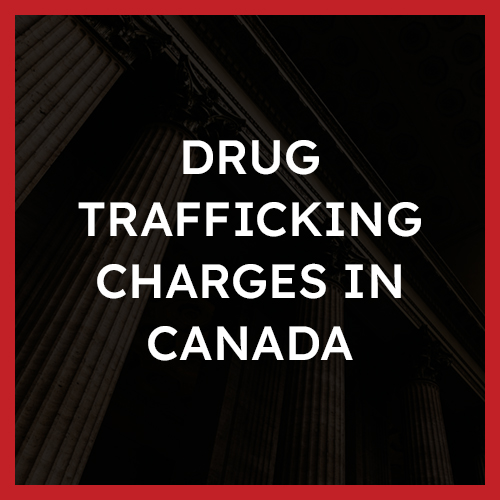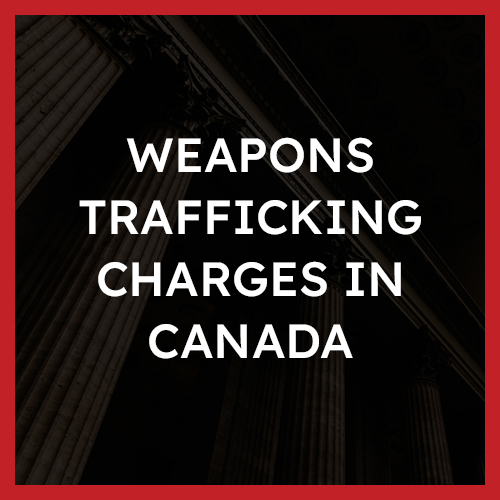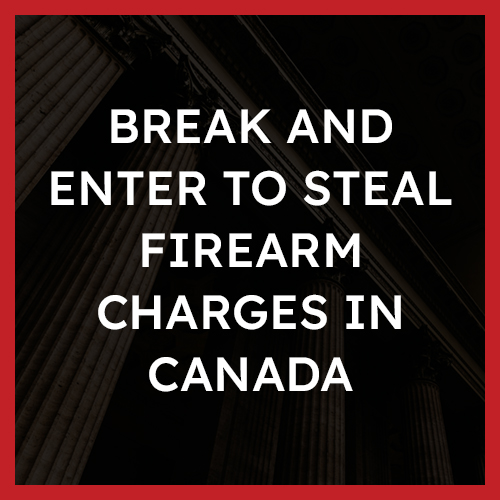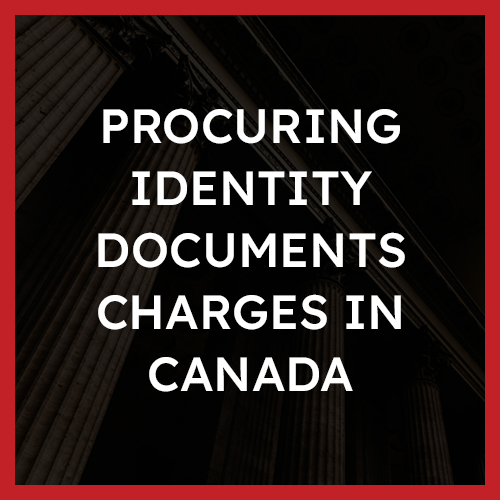Drug Trafficking (s.5 of the CDSA) Charges in Canada: Offences, Defences, Punishments
What is drug trafficking in Canada?
 Drug trafficking offences are covered under s.5 of the Controlled Drugs and Substances Act (“CDSA”).
Drug trafficking offences are covered under s.5 of the Controlled Drugs and Substances Act (“CDSA”).
Under s.5(1) of the CDSA, it is an offence to traffic in a substance included in Schedule I, II, III, IV, or V. However, s.5(2) of the CDSA makes it a crime to possess such substances for the purpose of trafficking.
Drug trafficking can generally be described as the delivery of a drug from one person to another. However, it is important to note that drug trafficking does not have to be done for the purpose of making money and it is irrelevant whether or not you completed the delivery of the drug.
Drug trafficking charges are serious offences that are subject to mandatory minimum sentences. In the CDSA offences and penalties differ according to what Schedule the particular drug is found under. Charges under s.5 of the CDSA relating to Schedule I and II drugs are straight indictable offences. Whereas charges relating to Schedule III and IV are hybrid offences in which the Crown can decide whether to proceed by indictment or summarily.
Examples
Some common examples of drug trafficking may include the following:
- Buying drugs from another person to resell them;
- Giving drugs to a friend to hold on for you;
- Selling a substance as a drug;
- Sending illegal drugs;
- Administering illegal drugs; or
- Transferring illegal drugs.
Defences
Common defences to drug trafficking charges may include the following:
- Entrapment;
- Personal use;
- Proof that it was not a controlled substance;
- No intent; or
- Any applicable Charter
Punishments
Drug trafficking charges are prosecuted harshly and depend on various factors such as which drug you trafficked and whether there are any aggravating factors present in your case. The following penalties may be applicable:
If the subject matter of the offence is related to a Schedule I or II drug:
- Maximum penalty of up to life imprisonment; or
- A minimum penalty of one year in jail if:
- The crime was associated with a criminal organization;
- Threatened to use violence;
- Carried or threatened to use a weapon;
- Convicted of a designated substance offence or severed a term of jail for a designated substance offence within the last 10 years.
- A minimum penalty of two years imprisonment if:
- The offence was committed near a school or public place used by people under the age of 18 years old;
- The offence was in a prison;
- The accused used the services of a person under 18 years old, or involved such a person, in committing the offence.
If the subject matter of the offence is related to a Schedule III or V drug:
- Indictment: Maximum penalty of up ten years imprisonment.
- Summary: Maximum penalty is 18 months imprisonment
If the subject matter of the offence is related to a Schedule IV drug:
- Indictment: Maximum penalty of three years.
- Summary: Maximum penalty of up to one-year imprisonment.
Overview of the Offence
Under s.5 of the CDSA:
Trafficking in substance
1. No person shall traffic in a substance included in Schedule I, II, III, IV or V or in any substance represented or held out by that person to be such a substance.
Possession for purpose of trafficking
2. No person shall, for the purpose of trafficking, possess a substance included in Schedule I, II, III, IV or V.
In order for the Crown to secure a conviction for drug trafficking, the actus reus and the mens rea must be proven, beyond a reasonable doubt.
The Guilty Act (Actus Reus)
The Crown must prove, beyond a reasonable doubt, that you:
- Trafficked a substance; and
- The substance was a Schedule I to V controlled substance.
Under s.2(1) of the CDSA “traffic” means, in respect of a substance included in any of schedule I to V, to:
- Sell, administer, give, transfer, transport, send or deliver the substance;
- Sell an authorization to obtain the substance; or
- To offer to do anything mentioned in paragraph (a) or (b), otherwise than under the authority of the regulations.
The court in R v Harrington, 1963 CanLII 675 (BC CA) interpreted the word “transport” to mean to promote the distribution of the narcotic to another.
For the purposes of the CDSA:
- Schedule I drugs are classified as opiates and related.
- Schedule II drugs are classified as
- Schedule III drugs are classified as psychedelics
- Schedule IV drugs are classified as barbiturates
- Schedule V drugs are classified as analogues and its derivatives.
The Guilty Mind (Mens Reas)
The Crown must prove, beyond a reasonable doubt, that you:
- Intended to traffic the substance.
The requisite mens rea of intent for trafficking offences can be inferred by taking into consideration the quantity, purity, or value of the substance in question. Yet, as seen in the case of R v Mehari, 2009 ABPC 217 (CanLII) the amount of drugs alone that you have on you cannot be used to establish the intent of trafficking. However, packing in numerous quantities, such as numerous small baggies, may allow a judge to infer an intent to traffic. This was seen in R v Scott, 2003 CanLII 27446 (ON SC).
For the purposes of trafficking by offer, under s.2(1)(c) of the CDSA, the Crown only needs to prove that you intended to make the offer and it is not necessary that you had an intent to follow through with the offer. This means that the Crown does not need to prove that you had the substance in question on you at the time of the offence or that you were capable of fulfilling the request.
Drug Trafficking Defences
How to Beat a Drug Trafficking Charge
A strong defence to a drug trafficking charge will depend on the specific circumstances of your case.
However, some defences that may be applicable could include the following:
- Entrapment;
- Personal use;
- Proof that it was not a controlled substance;
- No intent; or
- Any applicable Charter
Entrapment
If you were charged with a drug trafficking offence because of a police operation, under certain circumstances, you may be able to raise the defence of entrapment.
The defence of entrapment is available when:
- The police provide you with an opportunity to commit an offence without acting on reasonable suspicion;
- The police provide you with an opportunity to commit an offence without acting pursuant to bona fide inquiries; or
- Even if the police had reasonable suspicion or acted in the course of a bona fide inquiry, they went beyond providing an opportunity and induce the commission of the offence.
If you are able to prove, on a balance of probabilities, that either of these criteria is satisfied you will be able to successfully raise a defence of entrapment. For example, if before the police formed a reasonable suspicion that you trafficked drugs, came up to you and initiated a discussion of buying drugs you could rely on the defence of entrapment and if successful your charges could be stayed. However, it is important to note that before an application for a stay can be made, the Judge must be satisfied that the Crown has proven all elements of drug trafficking, beyond a reasonable doubt.
Personal use
If you are able to showcase that the drugs found in your possession were for personal use, as opposed to trafficking, then the actus reus cannot be made out for a truck trafficking offence. As the Crown needs to prove both the actus reus and the mens rea of an offence, beyond a reasonable doubt, if you are able to show that the drugs in your possession were for personal use then the Crown will be unable to secure a conviction for a drug trafficking offence. For example, if you are a user of drugs, you may be able to corroborate the evidence that is suggestive that the drugs found in your possession may be consistent with personal use as opposed to trafficking. It is important to note that the amounts required to maintain the addiction and the habits of typical users are relevant and evidence showcasing typical use usually takes the form of expert evidence.
Proof that it was not a Controlled Substance
The CDSA clearly sets out what drugs are considered controlled substances. As such, if the prosecution is unable to showcase, beyond a reasonable doubt, that the drug you are accused of trafficking is a controlled substance, it is highly unlikely that the Crown can secure a conviction. However, it is important to note that you can still be convicted of trafficking a substance that is not included in the CDSA if you wanted others to believe it was an illegal drug and advertised it to be so.
No Intent
If you are able to showcase that you did not possess the requisite intent required for a drug trafficking offence, then the Crown will not be able to secure a conviction as the mens rea element of the offence is not proven beyond a reasonable doubt. However, it is important to note that the court may infer intent to traffic by taking into consideration factors such as the amount of drugs or if numerous bags were present.
Applicable Charter Defences
The Charter sets out your rights and freedoms. During drug trafficking investigations, police officers can use many strategies to find evidence against you. It is possible that, in doing so, they violated your constitutional rights. One such right contained within the Charter is under s.8, the right to be free from unreasonable search and seizure. If the police have either deliberately or inadvertently violated your s.8 Charter rights, for example, seized drugs without a warrant or without adequate grounds for a warrant, your defence lawyer can make a Charter motion to exclude any evidence gathered by virtue of the illegal search under s.24(2) of the Charter. If the motion is successful, it is likely that evidence that would be needed to convict you for a drug trafficking charge would be excluded. This means that the Crown would not be able to rely on that evidence to prove that you are guilty of a drug trafficking offence.
Drug Trafficking Punishments
Drug trafficking charges are prosecuted harshly and depend on various factors such as which drug you trafficked. In law, there is a distinction made between hard drugs, such as cocaine, and soft drugs, such as marijuana. The courts have characterized schedule I drugs, which include cocaine, heroin, and methamphetamines, as highly addictive drugs which inflict great harm on individuals and society. As such, trafficking these drugs is considered a serious offence.
The following penalties may be applicable:
If the subject matter of the offence is related to a Schedule I or II drug
- A maximum penalty of up to life imprisonment; or
- A minimum penalty of one year in jail if:
- The crime was associated with a criminal organization;
- Threatened to use violence;
- Carried or threatened to use a weapon;
- Convicted of a designated substance offence or severed a term of jail for a designated substance offence within the last 10 years.
- A minimum penalty of two years imprisonment if:
- The offence was committed near a school or public place used by people under the age of 18 years old;
- The offence was in a prison;
- The accused used the services of a person under the age of 18 years old, or involved such a person, in committing the offence.
It is important to note that you will not have any discharges, suspended sentences, stand-alone fines, or conditional sentences available to you if you are convicted of a trafficking offence related to schedule I or II drugs.
If the subject matter of the offence is related to a Schedule III or V drug
If the subject matter of the offence is related to a Schedule III or V drug, then is a hybrid offence in which the Crown, depending on the circumstances of your case, may elect to proceed by indictment or summarily.
The following penalties may be applicable:
- Indictment: Maximum penalty of up ten years imprisonment.
- Summary: Maximum penalty is 18 months imprisonment
You will also have available to you a discharge, suspended sentence, fine, custody, custody and probation, custody and fine or a conditional sentence.
If the subject matter of the offence is related to a Schedule IV drug
If the subject matter of the offence is related to a Schedule IV drug, then is a hybrid offence in which the Crown, depending on the circumstances of your case, may elect to proceed by indictment or summarily.
The following penalties may be applicable:
- Indictment: Maximum penalty of three years.
- Summary: Maximum penalty of up to one-year imprisonment.
You will also have available to you a discharge, suspended sentence, fine, custody, custody and probation, custody and fine or a conditional sentence.
Additionally, the following aggravating factors, under s.10(2) of the CDSA, may increase the penalty that you receive:
If a person is convicted of a designated substance offence for which the court is not required to impose a minimum punishment, the court imposing sentence on the person shall consider any relevant aggravating factors including that the person
(a) in relation to the commission of the offence,
I. carried, used or threatened to use a weapon,
II. used or threatened to use violence,
III. trafficked in a substance included in Schedule I, II, III or IV or possessed such a substance for the purpose of trafficking, in or near a school, on or near school grounds or in or near any other public place usually frequented by persons under the age of eighteen years, or
IV. trafficked in a substance included in Schedule I, II, III or IV, or possessed such a substance for the purpose of trafficking, to a person under the age of eighteen years;
(b) was previously convicted of a designated substance offence; or
(c) used the services of a person under the age of eighteen years to commit, or involved such a person in the commission of, a designated substance offence.
Drug Treatment Court
Under s.10(4) of the CDSA if you have been convicted of a drug offence the court may delay sentencing to enable you to participate in a drug treatment court program or to attend a treatment program under s.720(2) of the Criminal Code such as addiction treatment program.
However, it is important to note that to start drug treatment court you will have to enter into guilty pleas. Additionally, drug treatment court has its own conditions that need to be satisfied and not everyone is guaranteed acceptance into the program. For example, if you have previous violent convictions on your criminal record or your current charge is deemed violent in nature, you may not be accepted into drug treatment court.
Frequently Asked Questions
What amount of drugs is needed for it to be considered drug trafficking in Canada?
It may not be clear whether someone is trafficking drugs, as such the courts have inferred intent to traffic by taking into consideration surrounding circumstances. For example, if you have a large quantity of drugs in their possession, have several small baggies of drugs prepared for individual sale or if you are actually selling drugs or trying to sell drugs you may be charged with trafficking, even if the quantity they are trying to sell is small
However, for cannabis, you are legally allowed to possess 30 grams of legal cannabis, dried or equivalent in non-dried form in public. Anything over this amount may be suggestive of trafficking.
Is drug trafficking a serious offence?
Yes, drug trafficking is a serious offence in Canada you can receive a penalty of up to life imprisonment. Additionally, you will also receive a criminal record which may impact to the ability to travel and your immigration status.
Can you go to prison for drug trafficking in Canada?
Yes, you can go to prison for drug trafficking in Canada. Even for first offences, you may receive a jail sentence. Additionally, depending on what drug you have trafficked you may be imposed a mandatory minimum sentence.
Published Decisions
R v Lloyd, 2016 SCC 13 (CanLII), [2016] 1SCR 130
In this case, the accused was a 25-year-old male who had a significant previous criminal record, including a very recent conviction for trafficking in controlled substances for purpose of trafficking. The accused was found in possession of heroin, cocaine and methamphetamine while he was on probation. The accused was sentenced to 18 months in jail together with ancillary orders as made by the trial judge.
You can read the full decision here.
R v Bisziel, 2012 ABQB 119 (CanLII)
In this case, the accused was charged with eight counts of possession of narcotics for the purpose of trafficking and possession of proceeds of crime. The police found drugs, a digital scale, score sheets, cellphones, cash, and other drug paraphernalia in the accused’s residence. The accused was charged in a single, multi-count indictment and was found guilty.
You can read the full decision here.
R v Fares, 2016 ABQB 199 (CanLII)
The accused was charged with possession of cocaine for the purpose of trafficking and production of cocaine. The police executed a search warrant at the accused’s residence and found eight grams of cocaine in a box, baggies, a scale, a pot with cocaine residue and glassware coated in white powder. The accused was found guilty of possession.
You can read the full decision here.
About The Author
Ask A Question
We endeavor to respond to questions within 24 hours. If your matter is urgent, please call our office or submit a request for a free consultation.







